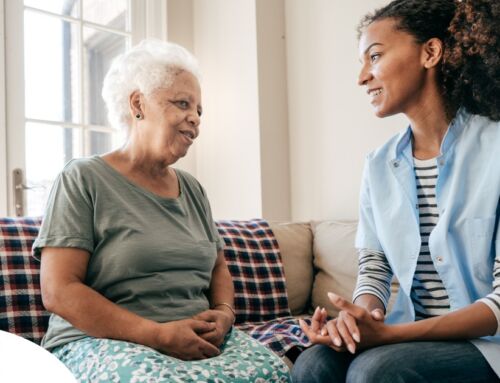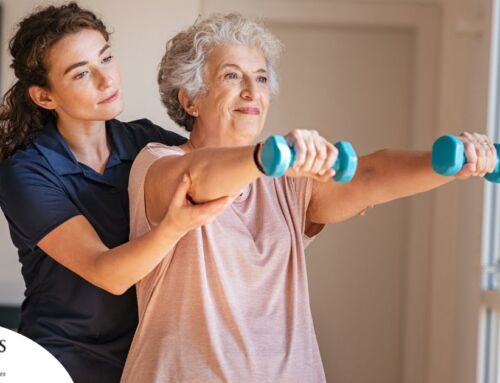You know that help with your senior loved one is needed. But beyond that, you’re unsure of how to determine the level of care that is needed. Is aging-in-place a desire or even a possibility? What options are out there and how do you decide between home care, nursing home or assisted living?
Choices like this are never easy to make, but with more education, comes peace of mind when it comes to decision time.
Home Care vs. Nursing Home or Assisted Living
First off, let’s look at the definitions of each:
Home Care
Perhaps there is a desire to stay in the home, to age-in-place. Often, once we’ve been in a home for a long time, we want to stay there and not be uprooted and moved to a unfamiliar place. Home care provides either Home Health professionals who come into the home and assist with numerous tasks and daily living activities.
Here are the various types of Home Care options:
Home Health Aides (HHA)
When looking for a trained compassionate “people” person to provide essential care services, a Home Health Aide is the one. Home Health Aides provide direct patient care such as bathing, dressing, bathroom assistance, and exercising. They also provide domestic services such as meal preparation, grocery shopping, and light housekeeping. Some clients, such as dementia patients, require a home care HHA to be on duty around the clock. A Home Health Aide may spend the entire day socially isolated with a client who cannot talk. Home Health Aides also provide companionship to individuals who rarely leave the home and may have little social contact.
Certified Nursing Assistant (CNA)
When looking for a trained compassionate person with formal training, you’ll find the Certified Nursing Assistant. Home care given by CNAs include many tasks also such as bathing, dressing, bathroom assistance, and exercising. Along with the domestic tasks, they also provide medical assistance with equipment and monitoring the client’s behavior and well-being. Their communications skills help provide a channel with the client, physician, and the family.
Licensed Practical Nurses (LPN)
These nurses care for the injured, sick, convalescent, and disabled clients. They provide basic nursing care such as bathing, dressing, and personal hygiene. They undergo clinical instruction which allows them to provide medical care such as bedsore treatments, enemas, injections, and tube feedings. They can also perform dressing changes, ice packs, and monitor catheters and drains. They also have keen observation skills to report medication side effects and provide client progress reports.
Registered Nurses (RN)
When in need of a nurse that is benevolent, caring, detailed, and has problem solving skills, look for a Registered Nurse. These nurses care for clients, administer medications, and communicate with physicians and other medical professionals to devise an individual home care plan for the client. They will monitor and assess client’s needs to provide the best possible care. They also have teaching skills to educate the clients how to manage their illnesses.
Assisted Living (and some Retirement Communities)
Assisted living occurs in a residential facility, much like apartment buildings and offers personal care in a home-like setting. Residents have their own spaces or apartments and there is usually round the clock personal care available. There is often a focus on social interaction, with recreational resident activities and shared common areas.
Many assisted living facilities offer “levels” of support (with coordinating levels of cost), ranging from only housekeeping and meals, all the way up to 24/7 supervision and personal care. This can be a good option when a senior wants to remain independent, but no longer wants to cook or clean and needs light assistance with daily living.
Nursing Home
Nursing care facilities also known as nursing homes offer a higher level of medical care, with a full time medical staff on premises. Residents do not usually have their own “unit” or apartment, but will have a bedroom and bathroom, while the rest of the space is shared with other residents.
Nursing homes focus more on medical assistance and needs in addition to assistance with daily living. Full time medical staff ensures medications are taken and onsite rehabilitation therapies are attended. Because of the onsite medical staff, many residents who go to nursing homes have conditions that precipitate a need of round the clock medical care.
How To Decide – 5 Important Questions to Ask
Let’s look at the most important questions that will help you determine the best kind of care for your loved one:
How much daily assistance is needed?
When sussing out living options, the best place to start is often by determining how much care is needed for the individual (or couple). Is a bit of help around the home needed or a companion wanted, even one who can provide medication reminders or shopping and organization skills?
Have a peek here for a great starter checklist to assess how much your loved one can do for themselves.
Does my loved one want to age-in-place?
If this is an option, it should be carefully considered. Perhaps the level of care they need will allow them to remain in the home they love, with additional help from a home care professional (like the ones listed above).
In addition to the tasks listed, home care builds a closer relationship with the caregiver and allows for the maximum level of independence.
Are there medical conditions (or security risks) that need 24/7 medical supervision ?
While there are medical conditions that can be supported within home care, there are severities of which and certain conditions that are better supervised in a medical facility rather than at home.
Advanced Dementia and Alzheimer’s patients or individuals needing consistent rehabilitation and medical services may benefit from facility living, but the primary physician should always be consulted about medical conditions and the optimum living arrangement for the individual.
Are family members geographically close?
Another thing to consider is the support network the individual has around them. Is there family close by, who regularly interact and who can help support with things like cooking, cleaning and other daily activities?
Professional home care that can be supplemented by family members or vice versa is often the best mix for most individuals.
Which is better for the family financially?
While the level of care may determine the type of living arrangement needed, of course, cost is a factor. Level of care, even for a high needs individual may run higher if considering facility-living.
Have a look at a great article explaining the breakdown of costs here.
~ ~ ~
Do you have questions about how you can better support your loved one while they age in place in South Florida or regarding homecare in general? Please contact CareGivers of America here: Contact or call us toll free: 800-342-4197
*No information in this article is to be taken as medical advice. This post is not sponsored, but may contain external links to websites, articles or product examples. External links are used for example or refence purposes only and these links do not indicate specific product or website endorsement by CareGivers of America.







